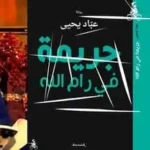Why are so many oral narratives of the Nakba almost identical? Are there voices that are marginalized and experiences that are suppressed? How can we understand a Palestinian peasant woman who explains that her life became better after the Nakba? These are some of the questions that I probed when exploring oral history in Palestine and paying close attention to the narratives of Palestinian women from the village of Mughallis. Ted Swedenburg identifies three distinctive qualities of Palestinian history-making and of oral history in particular. These are its fragmentation, loss, and “suppression.” In this essay, I examine “suppression” and its effects on the trajectory of Palestinian oral history. I begin with the Nakba as an event grounding Palestinian collective consciousness, probing it through one of the most marginalized sectors of Palestinian society: peasant women.
Palestinian researchers have contrasting approaches to the value given to written and oral testimonies: some adhere to classical conceptions of historical research, its documentary evidence, and methods of adjudicating the accuracy of this evidence; others may approach oral history with a bias toward a certain narrative and are on the lookout for supporting testimonies, while some researchers deploy multiple methodologies. All of these considerations are weighed within a research environment dominated by what I term the dominant ideology of national commitment. This general ideology – which is concerned with the preservation of the Palestinian identity and traditional social values, and emphasizes the unity of the Palestinian people and their struggle to end colonialism – is manifested in literary and artistic works, in the public discourse concerning the nation, and even in the modes of expressing joy and sorrow among other simple daily actions. In this study, I read the dominant ideology of national commitment through the writings and studies of those who conform to it as well as those who dissent from it. I opt for the term “ideology of national commitment” as a more comprehensive concept than the “ideology of national liberation,” which has been deployed by other scholars to describe the dominant ideology in the Palestinian political sphere post-1967 and the eruption of the Palestinian intifada.
While the emergence of the ideology of state-building diluted the intensity and dominance of the ideology of national commitment, it did not eradicate it, and its presence is still strongly felt today. Often there is a negotiation between the two ideologies. During times of intense confrontation with the occupation forces, the ideology of national commitment re-assumes its dominance, shaping the choices of scholars – whether they are aware of it or not. As such, undertaking a study and critique of the ideology of national commitment is a thorny matter, and I have hesitated numerous times before putting forth some of the ideas in this study.





